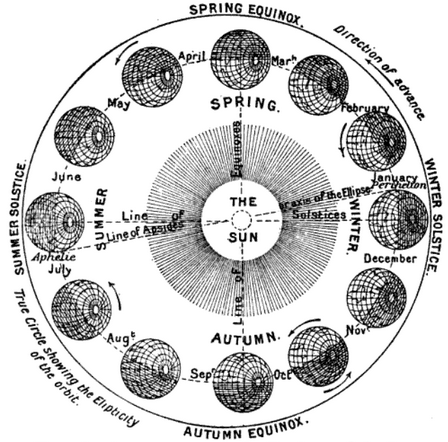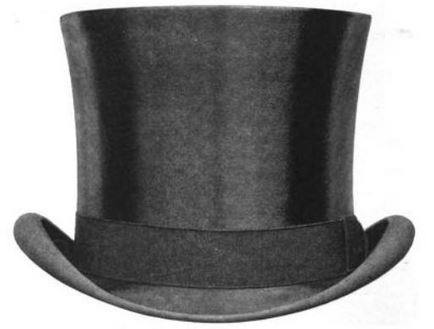Annual Report: 2023/2024.
 April 2023-Staff assembled in the conference room to mark the occasion of the 28th year of Freethinkers Anonymous and to try and answer the question, What are we doing here? There are a lot of excellent blogs out there on a wide variety of topics that, thankfully, are still going while others, sadly, have dropped off. If anything makes Freethinkers Anonymous distinctive it’s longevity. What started as a random assortment of jokes emailed to a distribution list has grown into something resembling an internet landfill. It predated and survived the dot-com boom and, like those early internet companies, has never had a plan, purpose, or profit. On this note everyone cheered and went back to work.
April 2023-Staff assembled in the conference room to mark the occasion of the 28th year of Freethinkers Anonymous and to try and answer the question, What are we doing here? There are a lot of excellent blogs out there on a wide variety of topics that, thankfully, are still going while others, sadly, have dropped off. If anything makes Freethinkers Anonymous distinctive it’s longevity. What started as a random assortment of jokes emailed to a distribution list has grown into something resembling an internet landfill. It predated and survived the dot-com boom and, like those early internet companies, has never had a plan, purpose, or profit. On this note everyone cheered and went back to work.
May 2023-Staff assembled in the conference room to mark the occasion of the 28th year of Freethinkers Anonymous before realizing we just did that, but since no one had gotten any work done in the last month everyone cheered and went back to work.
June 2023-Everyone remembered that every year there’s a vague plan to sample as many local milkshakes as possible to try and determine the best one. And every year an argument breaks out over what defines “local”. Or whether it should be limited to ice cream places since a lot of restaurants serve milkshakes. There was also a side discussion of how some years the plan is to sample every gyro to determine the best one in the area which would be a lot easier, and another side discussion of how to define “best” and a further side discussion of what the definition of “ersatz” is but no one could remember how that came up in the first place.
July 2023-Work was put on hold for the 4th of July. Also July 1st, since it’s Canada Day, and also the 2nd through 3rd of July, and everyone just called in sick from the 5th through 13th. Then everyone took off for Bastille Day, and planned to get back by July 20th, but that’s National Moon Walk Day, and the 21st is National Creme Brulee Day and of course everyone had to celebrate that, as well as the 26th which is National Coffee Milkshake Day, and finally everyone made a solemn vow to get back to work at the start of the next month.
August 2023-Toată lumea și-a amintit brusc că acum vreo douăzeci de ani ne-am propus să învățăm limba Romanian. Nimeni nu-și putea aminti de ce și, în loc să se întoarcă prin arhive, toată lumea a decis să se întoarcă la muncă.
September 2023-Side effects include swelling, brusing, pain or tenderness, itching, dizziness, fainting, blisters, lumps, hives, bee hives, drowsiness, headache, insomnia, autodidacticism, nocturnal cake baking, dehydration, foaming of the ears, hair growth on furniture, and spontaneous decomposition. Seek medical help immediately if you become ersatz.
October 2023-The staff Halloween party was such a great success it lasted the entire month. This year the theme was “Aposematism” and resulted in several people being hospitalized.
November 2023-Staff assembled in the conference room to discuss whether “No Shave November” should be celebrated. Everyone agreed that it should but that staff would only grow sideburns. This led to a discussion of why they’re called “sideburns” since no one wants burns on their face, not even on the sides. Large sideburns are also called “muttonchops” but this was considered problematic for vegans and causing potential copyright warnings from the estate of Shari Lewis. Staff finally unanimously agreed that from now on sideburns should be called “earbrows”.
December 2023-The preponderance of holidays in the month of December meant no one got any work done.
January 2024-Recovering from the preponderance of holidays in the month of December meant no one got any work done.
February 2024-Staff assembled in the conference room to begin the disassembly of a jigsaw puzzle everyone had been working on for over a year. This proved surprisingly challenging as no one could decide whether we should start from the center or go out or from a corner and work inward, and if we did go in from a corner which one should be start with? Finally everyone decided the best solution was to just flip the table over.
March 2024-Staff assembled in the conference room as Freethinkers Anonymous prepared to start its 29th year. The team leader reminded everyone he’d read something once about how the average life of a blog is three years and the realization that we’d almost but not quite gone ten times that put everyone in a somber mood. All things must come to an end, even things without a plan or purpose. And yet it was decided unanimously that Freethinkers Anonymous would go on for another year. On that note everyone cheered and went back to work.

 Having read several articles about New Year’s Resolutions over the years I’ve been able to coalesce all that I’ve learned into the following recommendations:
Having read several articles about New Year’s Resolutions over the years I’ve been able to coalesce all that I’ve learned into the following recommendations:
 Deleted Scenes From A Christmas Carol, found in the archives at The Charles Dickens Museum, Portsmouth. Scholars presume these sections were removed by Dickens himself to maintain economy of the story. The pages were also only recently transcribed thanks to radiographic analysis. Earlier reading was impossible due to the pages being heavily stained with port wine.
Deleted Scenes From A Christmas Carol, found in the archives at The Charles Dickens Museum, Portsmouth. Scholars presume these sections were removed by Dickens himself to maintain economy of the story. The pages were also only recently transcribed thanks to radiographic analysis. Earlier reading was impossible due to the pages being heavily stained with port wine.
 We don’t know how he came to life. Greg said he thought it might be the combination of the charcoal pieces and the sunglasses we stuck on him. There was the pipe too. It was just a stinky old corncob pipe I’d stolen from my brother Mike’s room. He didn’t need it anymore since he got a new glass bong. Anyway that didn’t make sense. Randy said it had to be the hat because when we put that on him that’s when he started talking. It was a round black hat with a flat top. I think I’d seen one like it in old pictures of magicians or something, except this one had some silver stuff around it, like a small belt. That still didn’t make any sense. How could a hat bring a snowman to life? Karen thought it might have been some kind of chemical reaction from the pesticides they use on the vacant lot where we built him, and I agreed with her that had to be what did it. There was just no other explanation. It’s not like he just suddenly jumped to life as soon as we put the stuff on him. No, the first thing he did was sort of lean forward and we thought maybe we’d stacked his body up too high and I thought the hat would fall off but it didn’t. Then he leaned back and then forward again. Then he started talking.
We don’t know how he came to life. Greg said he thought it might be the combination of the charcoal pieces and the sunglasses we stuck on him. There was the pipe too. It was just a stinky old corncob pipe I’d stolen from my brother Mike’s room. He didn’t need it anymore since he got a new glass bong. Anyway that didn’t make sense. Randy said it had to be the hat because when we put that on him that’s when he started talking. It was a round black hat with a flat top. I think I’d seen one like it in old pictures of magicians or something, except this one had some silver stuff around it, like a small belt. That still didn’t make any sense. How could a hat bring a snowman to life? Karen thought it might have been some kind of chemical reaction from the pesticides they use on the vacant lot where we built him, and I agreed with her that had to be what did it. There was just no other explanation. It’s not like he just suddenly jumped to life as soon as we put the stuff on him. No, the first thing he did was sort of lean forward and we thought maybe we’d stacked his body up too high and I thought the hat would fall off but it didn’t. Then he leaned back and then forward again. Then he started talking.
 As summer camp drew to a close there was always one final big campfire. Everyone, all the counselors, the support staff, the director, and all of us campers would set out after supper and climb the winding path through the crabapple orchard, along a winding, narrow path with pine trees on either side, before we emerged onto a little ridge at the top of the mountain. Most of the time we’d get there as the sun was halfway below the horizon and start the fire in the brick fire pit that had been there, well, I think before some of us were even born. As I’d look out over a seemingly endless swath of forest below I always felt it had always been there, and would always be there. By the time I was thirteen, though, I was starting to grow out of that feeling. I didn’t want to but it was inevitable. I’d been coming to the camp for three years, which, at the time, felt like a lot, because it was. It was almost a quarter of my life. And the group I was with had been moved to a relatively new section, set apart from the main camp. The main camp was a cluster of cabins, basically miniature houses with electric lights, clustered around the dining hall. We, the older campers, were sent to a spot several hundred feet beyond the bath house, which had previously marked the edge of the camp, and we changed, slept, and kept all our gear in “the hogans”, . These were large canvas tents thrown over arched wooden frames with wooden floors, as though a disorganized wagon train had rolled through the forest and then collectively gave up and rolled their wheels away into the woods.
As summer camp drew to a close there was always one final big campfire. Everyone, all the counselors, the support staff, the director, and all of us campers would set out after supper and climb the winding path through the crabapple orchard, along a winding, narrow path with pine trees on either side, before we emerged onto a little ridge at the top of the mountain. Most of the time we’d get there as the sun was halfway below the horizon and start the fire in the brick fire pit that had been there, well, I think before some of us were even born. As I’d look out over a seemingly endless swath of forest below I always felt it had always been there, and would always be there. By the time I was thirteen, though, I was starting to grow out of that feeling. I didn’t want to but it was inevitable. I’d been coming to the camp for three years, which, at the time, felt like a lot, because it was. It was almost a quarter of my life. And the group I was with had been moved to a relatively new section, set apart from the main camp. The main camp was a cluster of cabins, basically miniature houses with electric lights, clustered around the dining hall. We, the older campers, were sent to a spot several hundred feet beyond the bath house, which had previously marked the edge of the camp, and we changed, slept, and kept all our gear in “the hogans”, . These were large canvas tents thrown over arched wooden frames with wooden floors, as though a disorganized wagon train had rolled through the forest and then collectively gave up and rolled their wheels away into the woods. Yelp Reviews by Odysseus
Yelp Reviews by Odysseus A friend of mine told me, “I’ve been having these dreams that I’m running through the woods on all fours. I’m chasing something and I think that running on two legs would be better, but somehow I find myself going faster than I could on two legs, and it just feels natural. Anyway if I’m not around during the next full moon maybe this is why.”
A friend of mine told me, “I’ve been having these dreams that I’m running through the woods on all fours. I’m chasing something and I think that running on two legs would be better, but somehow I find myself going faster than I could on two legs, and it just feels natural. Anyway if I’m not around during the next full moon maybe this is why.” The writing group I’m part of decided it would be fun to try a round-robin writing exercise with everyone who wanted to join adding part of a story. And that got me wondering why it’s called a “round-robin” so I went to the Oxford English Dictionary and found that a round robin is, among other things, a small pancake, a sunfish, a hedge plant, a protective plate for a carriage axle, and, most interestingly, a letter signed by several people with all the signatures arranged in a circle so the recipient wouldn’t know who signed first. This was mainly used by sailors when presenting grievances to their captain, specifically something like, “If you don’t give us shore leave we’re all going to jump ship.” I’m not sure why who signed first mattered but maybe it was their way of showing there was no peer pressure.
The writing group I’m part of decided it would be fun to try a round-robin writing exercise with everyone who wanted to join adding part of a story. And that got me wondering why it’s called a “round-robin” so I went to the Oxford English Dictionary and found that a round robin is, among other things, a small pancake, a sunfish, a hedge plant, a protective plate for a carriage axle, and, most interestingly, a letter signed by several people with all the signatures arranged in a circle so the recipient wouldn’t know who signed first. This was mainly used by sailors when presenting grievances to their captain, specifically something like, “If you don’t give us shore leave we’re all going to jump ship.” I’m not sure why who signed first mattered but maybe it was their way of showing there was no peer pressure.